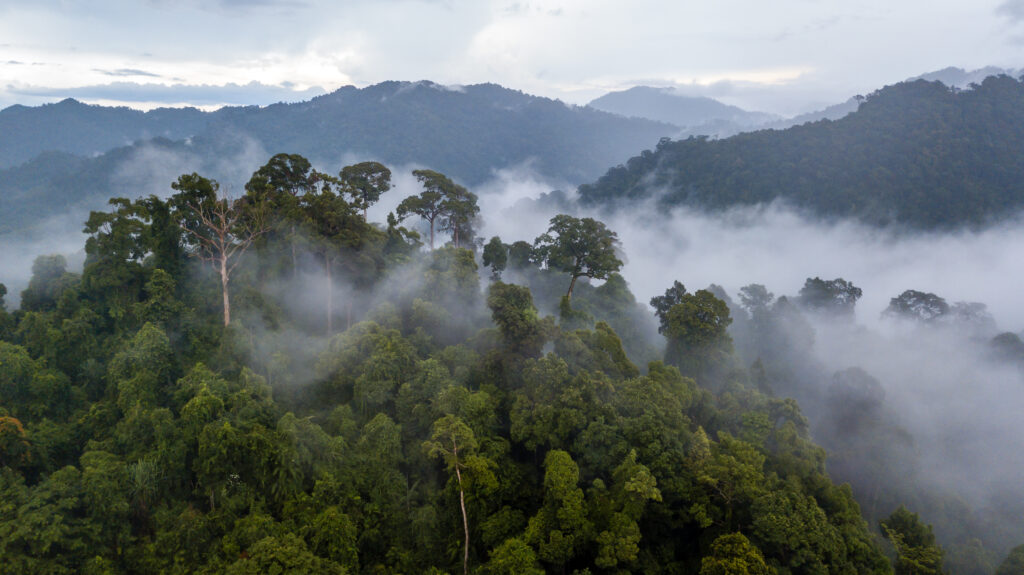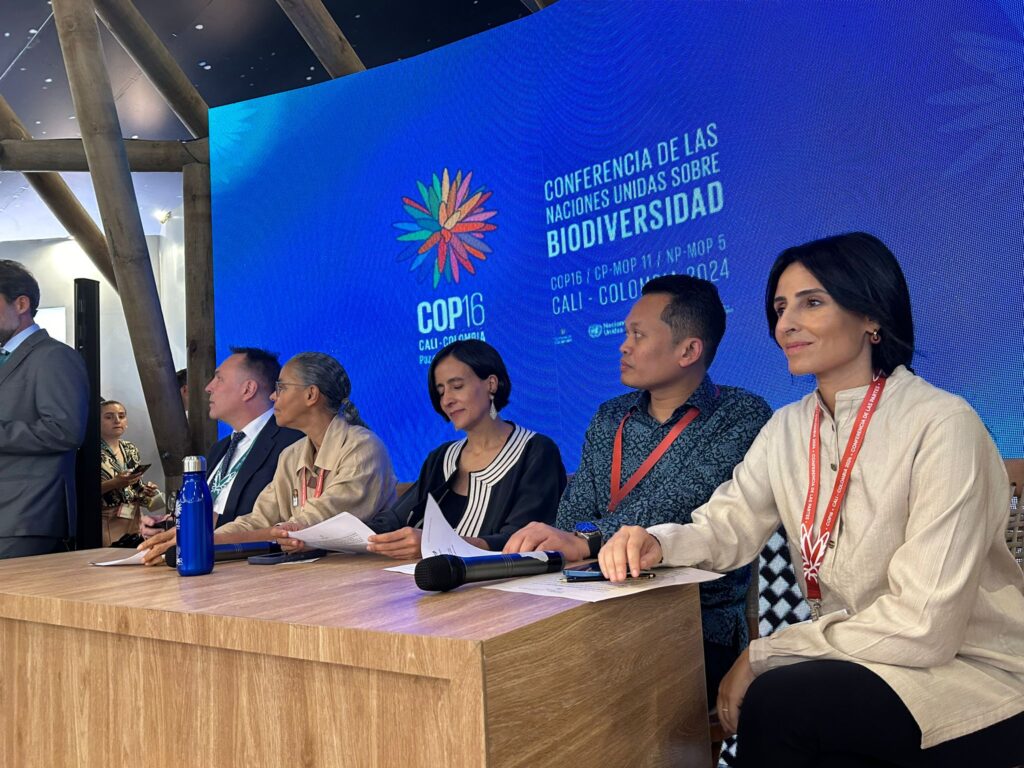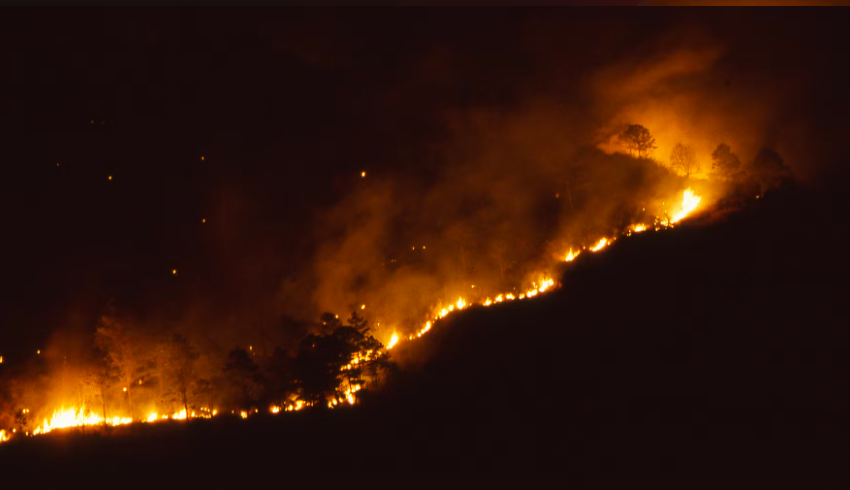Honduras’ forests under threat
Over 60% of Honduras is covered by biodiverse forests, rich in spectacular landscapes and home to unique flora and fauna. However, these ecosystems are rapidly degrading due to illegal land invasions in Indigenous territories and protected areas, unregulated logging, agricultural and livestock expansion, and infrastructure projects like roads constructed without environmental approvals. These activities not only destroy forests but also endanger local communities—approximately 40% of the population depends on forest resources for their livelihoods.
Honduras is also one of the most dangerous countries in the world for environmental defenders, with alarmingly high rates of persecution and violence. Indigenous Peoples, who play a vital role in conservation, often see their rights disregarded, with extractive projects promoted on their lands without consultation.
To address these challenges, Forests of the World works actively to protect Indigenous land rights and forest conservation. This includes efforts to halt illegal projects in protected areas and support land restoration initiatives to prevent further destruction by external actors.
Forests of the World in Honduras
Since 2000, Forests of the World has been working in Honduras, collaborating closely with Indigenous Peoples and local communities to monitor, protect, and conserve forest areas, as well as the territories and rights of Indigenous Peoples.
We focus on defending and strengthening territorial governance, human rights, and environmental rights, promoting sustainable development, improving forest management, and building local leadership capacities. Our goal is to highlight the value of tropical forests—not only through sustainable forest management but also by emphasising the many additional benefits they provide—to motivate and promote conservation over deforestation. Therefore, we primarily work in Indigenous territories, where most of the country’s tropical forests are located, as well as in communities within and around buffer zones of protected areas.
Our work includes forest and biodiversity monitoring, prevention and control of forest fires, sustainable and climate-resilient agroforestry, strengthening governance for both Indigenous and non-Indigenous communities, advocating for more favourable legislation to support Indigenous rights and natural resources, and engaging youth in protecting forests and biodiversity.
Our latest initiatives in Honduras

Protecting rights in Pico Bonito National Park
We support 12 Tolupán communities and civil society across five municipalities near Pico Bonito National Park. Together, we address threats to their rights, lands, and environment, advocating for the repeal of laws that allow deforestation in protected areas under misleading terms like “inactive land.”
Empowering youth through technology in La Moskitia
In the remote region of La Moskitia, we collaborate with young Indigenous Miskito leaders, equipping them with technological skills to enhance communication and collaboration. This enables them to defend their lands, engage in regional decision-making processes, and shape priorities for sustainable development.


Youth combating deforestation
We support Guaruma, a youth-led organisation working in communities near Pico Bonito National Park. They train children and adolescents in forest monitoring using drones and data analysis, raising awareness about forest conservation. Their inspiring work is featured in a short film showcasing the impact of their initiatives on both forests and local communities.
Certified forests drive development
As part of the sustainable use of forests, Forests of the World has supported local cooperatives for years in their forest management, processing, and sale of timber products. This has resulted in approximately 22,000 hectares of forest being FSC-certified. At the same time, a national FSC office has been established.
FSC certification is also a tool for improving the livelihoods of local communities in the area. FSC’s principles require compliance with the rights of local populations, ensure safe working conditions, and mandate that villages gain social and economic benefits from forest management.

Forest of the World’s partners in Honduras

IDAMHO: Institute of environmental laws in Honduras
IDAMHO is an organization that defends the rights of local communities – both Indigenous Peoples and non-Indigenous communities – while promoting the preservation and sustainable use of natural resources. They support local communities across Honduras in legal processes ranging from free administrative procedures to the registration of local organizations or representation in collective environmental lawsuits. In recent years, IDAMHO has been a strong advocate for Honduras to ratify the Escazú Agreement, which ensures that local communities and Indigenous Peoples have access to environmental information about projects that could affect them, while defending their right to stand up for their rights, especially in environmental matters. Together with Verdens Skove, IDAMHO has supported a group of organizations in analyzing laws and contracts with companies that may be harmful to people, forests, and biodiversity.

MOPAWI: Development of La Moskitia
MOPAWI is a non-profit civil society organization dedicated to working with the Indigenous Peoples of La Moskitia. The organization supports Indigenous communities and organizations in their efforts to develop governance frameworks, build capacity for ecosystem restoration and biodiversity conservation, and foster sustainable development and production. In partnership with Verdens Skove, MOPAWI is engaged in forest management, environmental education, Indigenous youth leadership training, reforestation of micro-watersheds and forests, youth exchanges between Indigenous territories and Guaruma, supporting land claims by Indigenous Peoples, establishing sustainable crops, and strengthening Indigenous governance structures.

Guaruma: Honduran Youth for Educational Development
Guaruma is a youth organization that works with young people from communities in the Cangrejal River Basin within Pico Bonito National Park. The organization focuses on environmental education, photography, and technology training. As part of their education and conservation efforts, the youth are actively involved in forest monitoring to help protect local forests.


